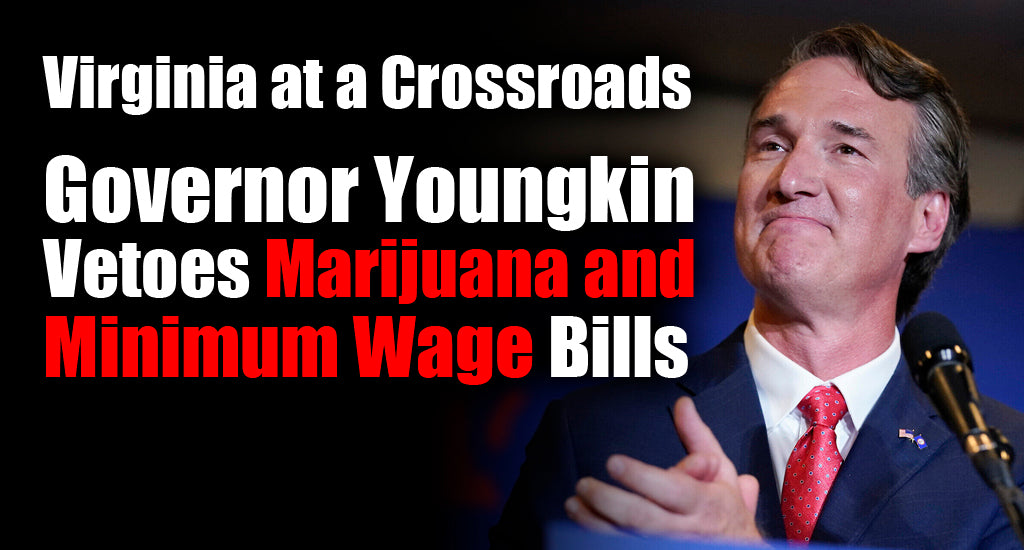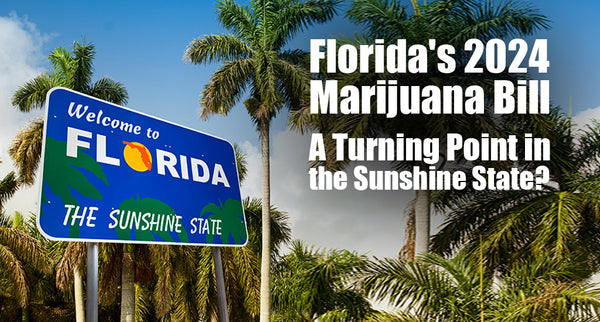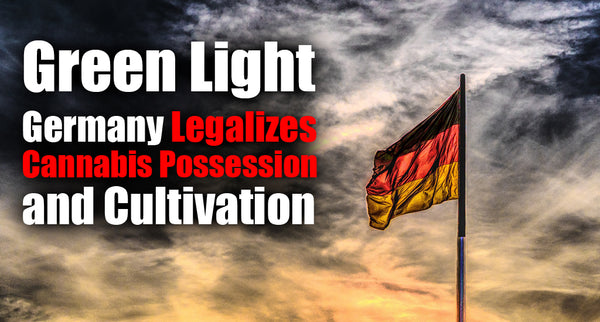
Virginia at a Crossroads: Governor Youngkin Vetoes Marijuana and Minimum Wage Bills
In a recent turn of events that has stirred the political pot in Virginia, Governor Glenn Youngkin's veto pen has been busily scratching out legislation that sought to chart a new course for the state's economy and social fabric. Amidst a backdrop of partisan divide and the crumbling of a much-touted sports arena proposal, Youngkin's decisions have thrust Virginia into the national spotlight, questioning the balance between economic ambition and societal welfare.
The Case Against Cannabis and Wage Hike: Youngkin's Stance
-
Impact on Youth and Society: Youngkin has raised the alarm on the potential societal harms of legalizing marijuana sales for recreational use, citing concerns over the well-being of children, a possible uptick in crime rates, and the specter of increased psychosis.
-
Questioning the Economic Benefit: The governor challenges the notion that a legal cannabis market would significantly boost state revenues, pointing to the struggles other states have faced in converting black markets to regulated ones.
-
Raising the Minimum Wage: A Question of Competitiveness
-
Market Dynamics: Youngkin believes in the free market's ability to adjust wages dynamically, arguing that a mandated wage increase could stifle Virginia's economic flexibility.
-
Regional Economic Disparities: Highlighting the cost-of-living variance across Virginia, the governor contends that a one-size-fits-all wage hike is impractical and potentially harmful to less affluent areas.
Weighing the Evidence: Does Youngkin Have a Point?
The debate surrounding the legalization of retail marijuana and the increase in minimum wage within Virginia embodies a multifaceted issue, intertwining economic prosperity, public health, and the core values of society. This discussion extends beyond the realm of politics, reaching into the daily lives of Virginians, influencing their health, economic stability, and societal norms.
-
Economic Implications: The promise of a regulated cannabis market to dismantle the illegal drug trade presents a compelling argument. It suggests a shift towards a safer, controlled distribution system, potentially generating significant tax revenues for the state. However, Governor Youngkin's skepticism regarding the actual financial uplift for states with legalized marijuana echoes concerns about overestimating economic benefits while underestimating the costs associated with regulation and public health efforts. Similarly, the debate on raising the minimum wage touches upon the balance between enhancing workers' living standards and the potential strain on small businesses, especially in economically diverse regions, illustrating the delicate equilibrium between wage growth and job market flexibility.
-
Public Health and Safety Concerns: The legalization of marijuana raises valid concerns about its accessibility to minors and the potential for increased substance misuse, emphasizing the need for robust regulatory frameworks to mitigate these risks. Critics argue that legalization could lead to safer consumption through regulated products, yet the governor points to the broader societal impacts, such as increased crime and health issues, as pivotal reasons for caution. The discussion extends to the workforce with the minimum wage debate, where improved financial stability for workers is juxtaposed with the potential for reduced employment opportunities in a higher wage landscape.
-
Societal and Cultural Values: At the heart of this debate lies a clash of societal values — between progressivism and conservatism, freedom and regulation, economic liberty, and social welfare. The decisions on these matters reflect deeper ideological divides, shaping the cultural fabric of Virginia. Advocates for legalization and wage increases view these measures as steps towards a more equitable and progressive society, while opponents, including Governor Youngkin, caution against rapid changes that might have unforeseen consequences on societal health and economic competitiveness.
The discussions on marijuana legalization and minimum wage increases are emblematic of broader societal debates, challenging lawmakers and citizens alike to find a balanced path that honors both individual freedoms and community well-being.
Looking Ahead: The Road to Reconciliation and Reform
As Virginia stands at a crossroads, the path forward requires a delicate balance of ambition and caution. The vetoes have sparked a vigorous debate about the direction in which the state is headed, underscoring the need for bipartisan dialogue and compromise. The challenge lies in crafting policies that can address the concerns raised by Youngkin while still moving forward on issues of significant public interest and economic development.
As the dust settles, Virginians and their elected representatives are left to ponder the best way forward, recognizing that the state's future hangs in the balance.
Leave a comment
Comments will be approved before showing up.



